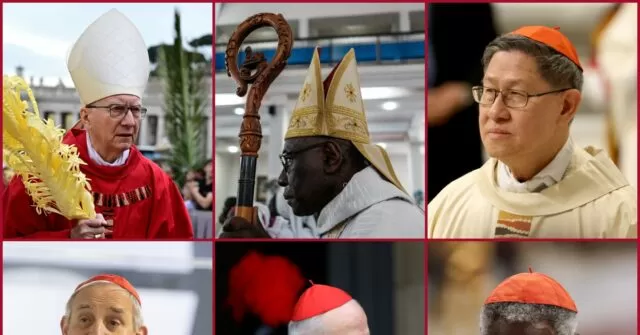On Easter Monday, the world mourned the passing of Pope Francis, the beloved leader of the Catholic Church. With his humble and compassionate leadership, Pope Francis touched the hearts of millions and brought a renewed sense of hope and unity to the Church. As the faithful bid farewell to this remarkable leader, the Church now faces the task of selecting the next Bishop of Rome, a decision that will shape the future of the Church and its 1.3 billion followers.
The process of selecting a new Pope, known as a conclave, is a sacred and solemn tradition. Cardinals from around the world will gather in the Sistine Chapel to pray and deliberate on who will be the next successor of St. Peter. This decision is not taken lightly, as the chosen candidate will be responsible for guiding the Church and its followers for years to come.
As the world eagerly awaits the outcome of the conclave, there has been much speculation about who the top candidates may be. Among them, there are some who have been critical of Pope Francis’ progressive approach and others who hold more conservative views. These candidates have been dubbed as the “post Francis critics” and “conservatives” respectively, and they have emerged as strong contenders for the papacy.
The post Francis critics, who have openly expressed their disagreement with some of Pope Francis’ reforms, are seen as a potential force for change within the Church. They advocate for a return to traditional Catholic teachings and a stricter adherence to doctrine. Some of the names that have been mentioned as potential candidates include Cardinal Robert Sarah of Guinea, Cardinal Gerhard Müller of Germany, and Cardinal Raymond Burke of the United States.
On the other hand, the conservative candidates are seen as a continuation of Pope Francis’ legacy, with a focus on social justice and inclusivity. These candidates have been praised for their commitment to the poor and marginalized, and their efforts to bridge the gap between the Church and modern society. Among them, Cardinal Luis Antonio Tagle of the Philippines, Cardinal Pietro Parolin of Italy, and Cardinal Christoph Schönborn of Austria have emerged as strong contenders.
It is important to note that the selection of the next Pope is not a political or ideological decision, but rather a spiritual one. The conclave is guided by the Holy Spirit, and the chosen candidate is believed to be the one who is best suited to lead the Church at this particular time in history. As such, the personal qualities and character of the candidates will play a significant role in the decision-making process.
Regardless of who is chosen as the next Pope, it is certain that he will face many challenges and responsibilities. The Church is at a critical juncture, with issues such as the sexual abuse crisis, declining church attendance, and changing societal values posing significant challenges. The next Pope will need to be a unifying figure, capable of bringing together the diverse voices within the Church and leading with compassion and humility.
As we await the outcome of the conclave, let us remember that the selection of the next Pope is a sacred and prayerful process. Let us pray for the guidance of the Holy Spirit and trust in God’s plan for the Church. The legacy of Pope Francis will always be remembered, and the next Pope will have big shoes to fill. But with the support and prayers of the faithful, we can be confident that the Church will continue to thrive and spread the message of love and mercy to the world.
In conclusion, the passing of Pope Francis has left a void in the hearts of many, but it has also opened the door for a new leader to guide the Church. The post Francis critics and conservatives may be among the top candidates, but ultimately, it is the will of God that will prevail. Let us pray for a smooth and peaceful transition and trust in the wisdom of the conclave as they make this important decision. May the next Pope continue to inspire and guide the faithful, and may the Church continue to be a beacon of hope and love for all.

